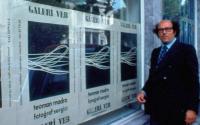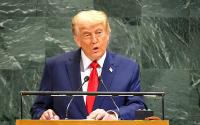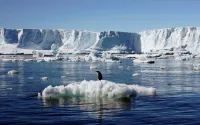 Bush says new technologies are the way forward |
4 July 2005
Speaking to British broadcaster ITV, he said he would instead be talking to fellow leaders about new technologies as a way of tackling global warming.
But he conceded that the issue was one "we've got to deal with" and said human activity was "to some extent" to blame.
Tony Blair is hoping for agreements on climate change and Africa when he hosts the summit in Scotland this week.
Economic impact
Mr Bush said he would resist any packet of measures that are similar to the 1997 UN Kyoto protocol, involving legally binding reduction on carbon emissions, that Washington never ratified.
"If this looks like Kyoto, the answer is no," he said in an interview with ITV's Tonight With Trevor McDonald programme to be broadcast on Monday evening.
"The Kyoto treaty would have wrecked our economy, if I can be blunt."
He said he hoped the other G8 leaders would "move beyond the Kyoto debate" and consider new technologies as a way of tackling global warming.
Divided opinion
UK Environment Secretary Margaret Beckett told the BBC's Today programme that she was reluctant to speculate on what the US would agree to, but she said negotiations were likely to "go to the wire".
"I think what matters more than the exact theology is where people end up," she said. "What we hope for is quite an ambitious action plan on steps that the international community can take and also agreement to try and take forward discussion and dialogue about the future."
French President Jacques Chirac said he was hopeful that a deal could be reached by G8 leaders on climate change.
"We are waiting to know the American position, which was ... far more moderate, or less demanding than ours. I hope we can find a sufficiently clear, firm agreement in this field," he said, after informal talks with German and Russian leaders.
But German Environment Minister Juergen Trittin said he was "very sceptical on the willingness of the US to move".
"But," he added, "I see the role of the G8 to build a bridge."
Farm subsidies
Mr Bush told ITV the US was investing in developing new clean energy techniques such as sequestration of carbon dioxide in underground wells, hydrogen-powered cars and zero emission power stations.
"I think you can grow your economy and at the same time do a better job of harnessing greenhouse gases," he said.
But he showed signs of coming into line with general world opinion by describing climate change as "a significant, long-term issue that we've got to deal with".
In the past, he has strongly opposed any action on climate change in favour of further studies on the issue.
But he rejected the idea he should support the British prime minister's G8 plan in return for his support during the war in Iraq.
"Tony Blair made decisions on what he thought was best for keeping the peace and winning the war on terror, as I did," he told the programme.
"So I go to the G8 not really trying to make him look bad or good, but I go to the G8 with an agenda that I think is best for our country."
On the other major issue to be discussed at the summit, tackling African poverty, he signalled he was ready to abandon US farm subsidies - but only if the European Union was prepared to scrap its Common Agricultural Policy.
Farm subsidies are said to unfairly distort the world market faced by African farmers.
"We've got agricultural subsidies, (but) not nearly to the extent that our friends in the EU have," he said.
The G8 leaders - from Britain, Canada, Germany, France, Italy, Japan, Russia and the US - meet in Gleneagles on Wednesday for the start of the three-day summit.






